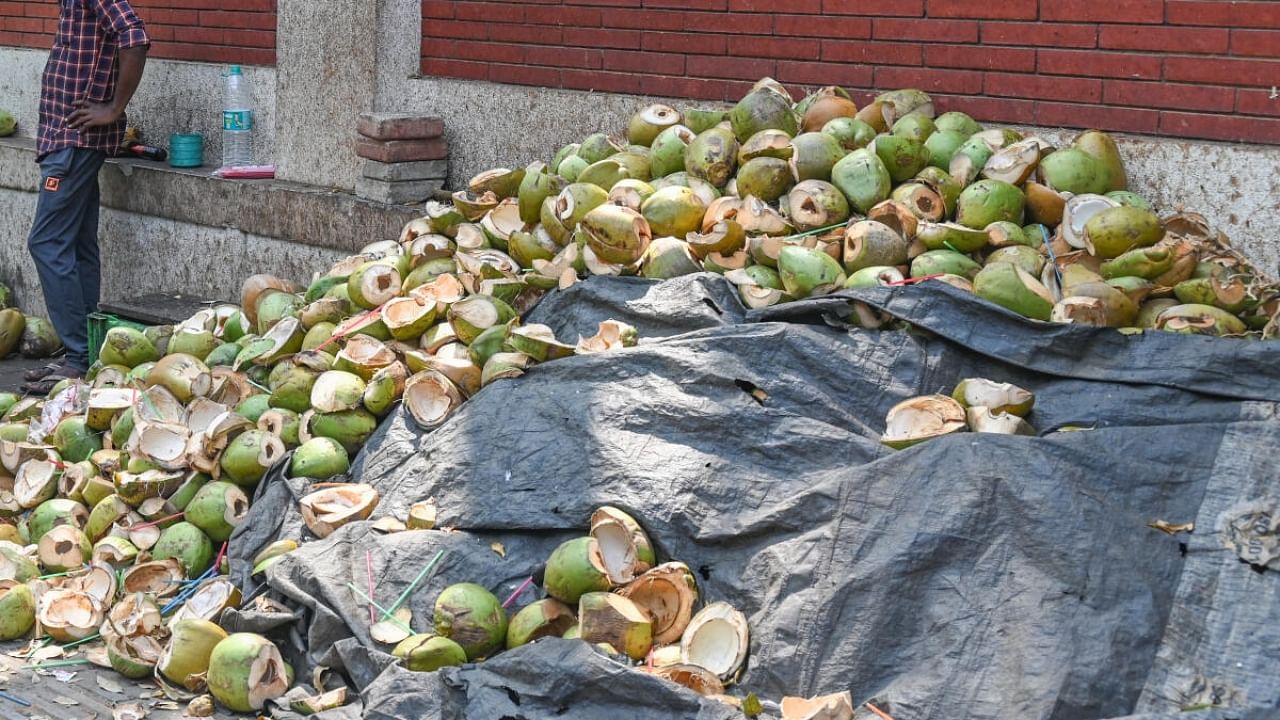
With summer comes the trend of drinking tender coconut water, which is profitable for vendors but results in discarded coconut shells littering street corners.
Even as citizens complain about coconut shells piling up in many areas, municipal workers and waste collectors refuse to clear them due to the high volume, and vendors dump them in vacant areas and in city outskirts.
The Bruhat Bengaluru Mahanagara Palike (BBMP) currently runs just one plant to process coconut shells.
While the city generates an estimated 300 tonnes of coconut shells a day during the summer, the plant is capable of processing just 40 tonnes.
DH visited the plant behind Freedom Park and found large heaps of coconut shells lying unattended. Workers expressed helplessness about processing the large volume of waste.
"We have a manpower shortage,” one of the workers said was the reason for their inability to process much of the waste.
The disheartened worker also bemoaned the lack of demand for processed products like cocopeat and coir that is taking up much of the plant’s space.
Acknowledging the looming waste management issue, BBMP officials said they will process tender coconut waste in the existing processing plants.
“We had called for tenders to set up a new plant. But the project was not finalised,” said a senior BBMP official.
'No support from BBMP'
Private firms keen on taking up the processing of coconut waste accuse the civic body of not being supportive.
“A huge amount of the tender coconut waste generated ends up in the landfills. Though we approached the BBMP to support us to set up a plant, we hardly received any response and we had to run around to obtain every permission,” said Harshith Reddy of SM Enterprises, who set up a tender coconut waste processing plant at KR Puram in 2021.
Coconut shells are processed into two highly sought-after commodities: cocopeat, a fertiliser that nourishes plants, and coir, which weaves its way into everything from sturdy ropes to cosy beds.